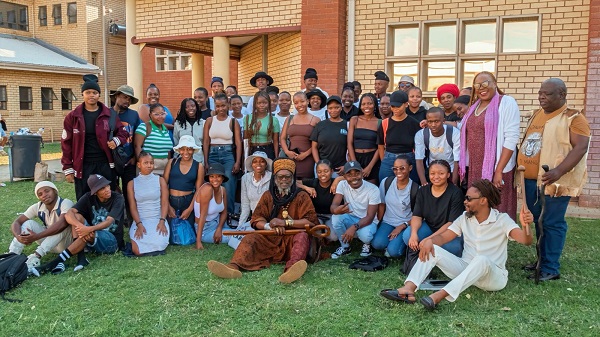A passionate call has been made to integrate indigenous knowledge of astronomy into the development of responsible astro-tourism – also known as dark sky tourism – in South Africa.
“Including the diverse cultural perspectives of our understanding of the night sky will provide a holistic interpretation of our universe and pique the curiosity of young minds as they gain interest in studying modern science and benefit indigenous communities,” said Dr Sisco Auala, a renowned researcher from the Namibia University of Science and Technology, speaking at an event at the North-West University’s Mahikeng Campus on 31 March 2025.
The NWU’s Indigenous Knowledge Systems (IKS) Centre arranged the lecture, which was part of an IKS lekgotla held to explore how indigenous astronomical knowledge could be incorporated into astro-tourism, comprising stargazing, astrophotography and opportunities to learn about astronomy.
Indigenous astronomy often integrates celestial phenomena with cultural practices, stories and seasonal rhythms and is linked to environmental stewardship and sustainability. Indigenous people used it to develop practical ways to observe the sun, moon and stars to inform navigation and calendars, and to predict the weather.
The topic of Dr Auala’s lecture was the “Programme for integrating indigenous knowledge of astronomy into responsible astro tourism development”. It attracted indigenous knowledge experts such as Dr Motheo Koitsiwe, director of the IKS Centre and the first African indigenous scholar to complete a PhD in IKS, Prof Lufuno Makhado of the University of Venda and Thau Thau Haramanusa, an African spiritual historian.
Dr Auala also called on the South African Government to put policies in place to make indigenous knowledge thrive and for future researchers to have the necessary government support.
IKS Centre director Dr Koitsiwe, who is championing the revival of the international indigenous astronomy Experts Society, thanked Dr Auala for her contribution and commented on her track record of collaboration in the field of indigenous astronomy. “She is seeking opportunities for collaboration to build on the work she has already done in Namibia,” he said. “Further research by scholars from other universities will complement that work and help to do justice to the field.”
The lekgotla ended with discussions with students and an announcement that more seminars will follow.

